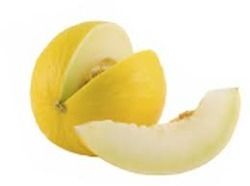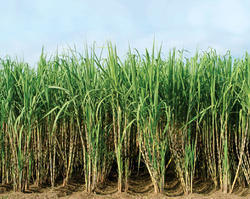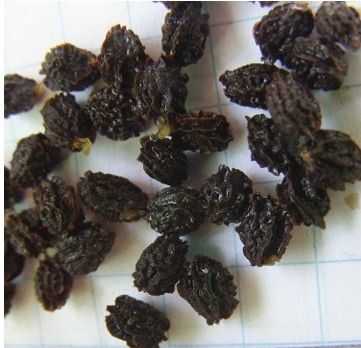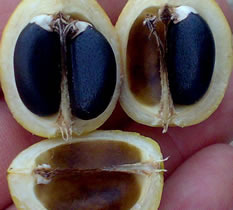Punica granatum
Price 55 INR/ Kilograms
Punica granatum Specification
- Product Type
- Punica granatum
- Type
- Fruit Seeds
- Grade
- Food
- Variety
- Punica
- Color
- Brown
- Purity
- 99%
Punica granatum Trade Information
- Minimum Order Quantity
- 5 Kilograms
- Payment Terms
- Cash in Advance (CID), Cash Advance (CA)
- Supply Ability
- 10000 Kilograms Per Week
- Delivery Time
- 2-7 Days
- Main Export Market(s)
- Western Europe, Australia, Eastern Europe, Central America, Middle East, South America, Asia, North America, Africa
- Main Domestic Market
- All India
About Punica granatum
Botanical Name: Punica granatum
Synonyms: Punica malus, Punica nana L., Punica florida, Punica grandiflora, Punica nana. Punica spinosa
Common Name: Pomegranate
Seeds collection period: June- July
Seed longevity: 1 year
Description:
Punica granatum is a small multi-stemmed shrub/tree 5-10 m tall. Canopy open, crown base low. Stem woody and spiny, bark smooth and dark grey. Leaves simple, 2-8 cm long, oblong or obovate, glabrous, oppositely placed, short-petioled surface shining. Flowers regular, solitary or in fascicles at apices, 4-6 cm. Petals lanceolate, 5-7, wrinkled and brilliant orange-red. Hypanthium coloured, 5-8 lobed. Anthers numerous. Calyx persistent. Fruit a round berry, 5-12 cm, pericarp leathery. Interior compartmentalized with many pink-red sections of pulp-like tissue, each contains a seed grain. Fruits globose with persistent callipe and a coriaceous woody rind. Seeds numerous, angular with fleshy testa, 1.3 cm long.Use:
Medicine: The bark of the pomegranate tree may be used as a very strong purgative, but it has several serious side-effects. The fresh root bark is used in an anthelmintic preparation, the alkaloid punicine is responsible for this activity. Unripe fruit and flowers are significant emetics. Ripe fruits are laxative and blood enriching also useful in managing sore throat, spre eyes, brain diseases and chest troubles
Superior Purity and Quality Assurance
Our Punica granatum seeds boast a remarkable 99% purity, ensuring a high rate of successful germination and growth. Each batch is meticulously inspected and graded as food quality, making them suitable for both cultivation and direct consumption. Sourced from trusted Indian growers, these brown seeds undergo rigorous selection and processing for consistency and safety.
Wide Applications and Nutritional Value
Punica granatum (pomegranate) seeds are valued for their nutritional benefits and versatile applications. They can be cultivated for fruit production, pressed for oil, or consumed directly for their health advantages. Rich in antioxidants, fiber, and essential nutrients, they offer an excellent addition to dietary plans and commercial food products.
FAQs of Punica granatum:
Q: How are Punica granatum seeds typically processed before export?
A: These seeds undergo thorough cleaning, grading, and quality checks to ensure 99% purity and food-grade standards. After sorting and drying, they are packed securely for export, preserving their viability and nutritional value.Q: What is the main benefit of using food-grade Punica granatum seeds?
A: Food-grade Punica granatum seeds can be used for both cultivation and direct consumption. They are safe, rich in nutrients, and suitable for producing various pomegranate-based products, ensuring versatility for different applications.Q: Where can I buy Punica granatum seeds in bulk in India?
A: You can purchase these high-purity Punica granatum seeds from exporters, manufacturers, suppliers, traders, and wholesalers across India. Many reputable companies offer both domestic and international shipping.Q: When is the optimal time to plant Punica granatum seeds for best results?
A: For best germination, plant Punica granatum seeds during the spring or early summer when temperatures are warm, ensuring ample sunlight and moisture for seedling development.Q: What makes the Punica variety of pomegranate seeds unique?
A: The Punica variety is admired for its robust growth, high yield potential, and adaptability to Indian climates, making it a preferred choice among commercial growers and home gardeners.Q: How are these seeds commonly used besides cultivation?
A: Besides plant cultivation, food-grade Punica granatum seeds are consumed directly, used in cooking for added texture and nutrition, or processed to extract pomegranate oila valued ingredient in health foods and cosmetics.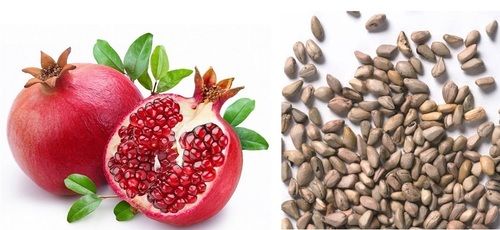

Price:
- 50
- 100
- 200
- 250
- 500
- 1000+
More Products in Fruit Plants &Seeds Category
Melon Gladial- Fl Seeds
Price 52 INR / Kilograms
Minimum Order Quantity : 5 Kilograms
Grade : Food
Variety : Other, GladialFL
Edible : 1
Purity : 98%
Sugarcane Plant
Price 51 INR / Kilograms
Minimum Order Quantity : 5 Kilograms
Grade : Food
Variety : Other, Co 86032
Edible : 1
Purity : 98%
Carica papaya
Price 51 INR / Kilograms
Minimum Order Quantity : 5 Kilograms
Grade : Food
Variety : Other, papaya
Edible : 1
Purity : 98%
Jatropha Seeds
Price 50 INR / Kilograms
Minimum Order Quantity : 5 Kilograms
Grade : Food
Variety : , Other
Edible : 1
Purity : 98%





 Send Inquiry
Send Inquiry
